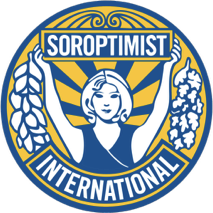Tuesday evening, June 20, the time had come: Kambisa! was allowed to give a presentation to the Soroptimists of De Meierij: Den Bosch and surroundings. Soroptimists are professionals who are committed to their sisters in the rest of the world, so they must want to know what Kambisa! does for that. To introduce that, they asked for a presentation with the promising title “Kambisa! BeHeard. – how an idea developed into a thriving project in Zambia”.
After an extensive slide tour of our long history across multiple continents, it was clear to the Soroptimists: Kambisa! does what she can to ensure that everyone has an equal voice and can learn from each other. So we give training, microphones and cameras to people who often don’t have those kinds of resources, and we do our best to get their stories out there. With the construction of the community center, this attention has been expanded in recent years with the exchange of traditional knowledge and the provision of resources such as tools, workspaces, solar panels and a water pump.
‘Everyone has an equal voice’, that means including women, but also inclusive men – even if they often have less to catch up on. In practice, their lives are often so intertwined that you need both parties to move forward. We are not going to dictate to women how they should be independent, but we are trying to do our work in such a way that they have more freedom of choice. For example, the construction of a water point often saves them a lot of time, which they can then spend differently. For example, in the participation of Kambisa! OnWood, where they learn to make furniture with local materials, or participate in the next edition of Kambisa! OnScreen (2024), in which we will map out together with the University of Local Knowledge what forest knowledge they have to offer, and how we can share and preserve that knowledge. For example, the mother of one of our masons already gave workshops in preparing ‘Munkoyo’ and ‘Chikanda’, a fermented drink and a vegan sausage based on plants from the forest.
gender relations
Although we always tell Dutch participants in exchange projects that they are going to Zambia to learn, the cooperation with boys who do their own laundry and girls who teach men carpentry often leaves the necessary traces. In the community center we have a few rules that should strengthen mutual equality:
- Show respect
- No alcohol and/or drugs
- Look out for each other
By focusing on equality of all those present, we can, for example, also address historical racial inequality, or the way in which people from the city look down on people in the countryside. In this we are quite radical again: if we see that one of our participants does not treat another well, that person is called to account. On the other hand, we also ask local participants and employees to be critical of their management and guests, which often requires a lot of trust. Fortunately, that seems to have been granted to us.
With the recent construction of the studio space, we hope to be able to do a lot of work in the coming years in our familiar domains, those of media and art. The next project will probably be supervised by Karlijn Milder, one of the students who came to Zambia in 2009 for the then edition of Kambisa! OnScreen, now a renowned cinematographer, director and filmmaking teacher.
The list of materials for the studio is already available, more details about the project that should train people in its use will follow soon. Under ‘Productions’ you can now see which films, documentaries, demos, drawings, poems and articles the Kambisa! women previously made.

